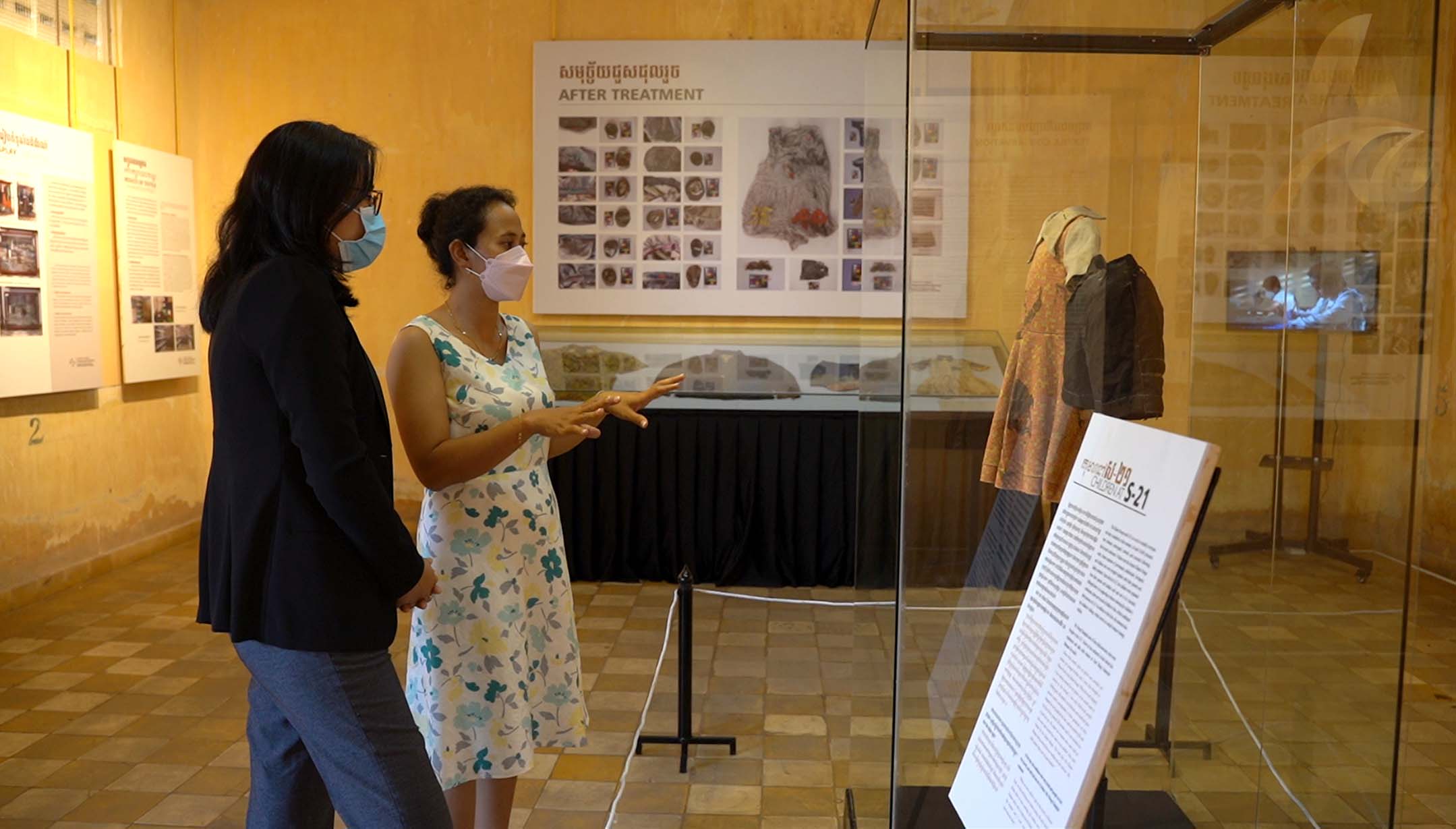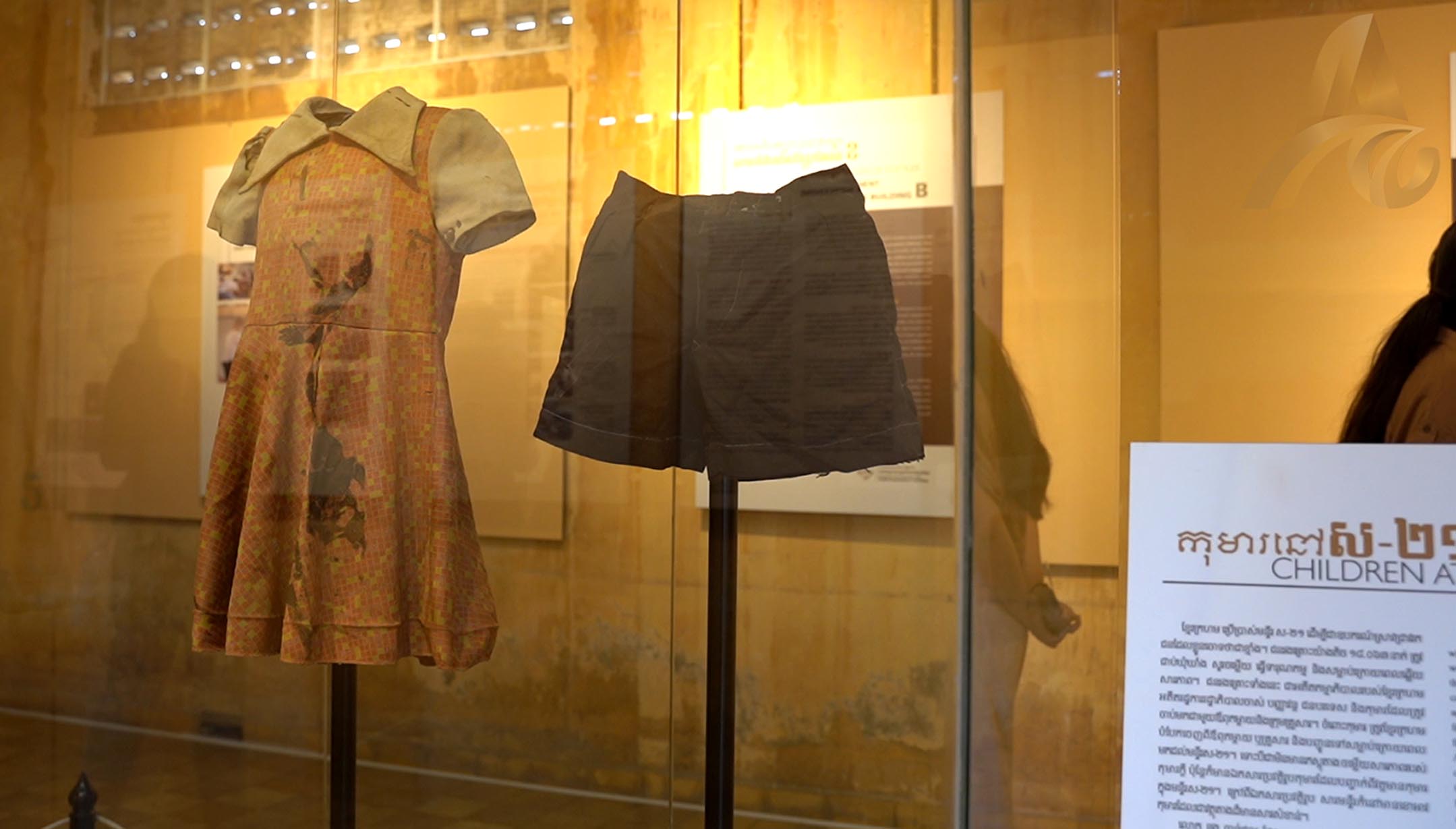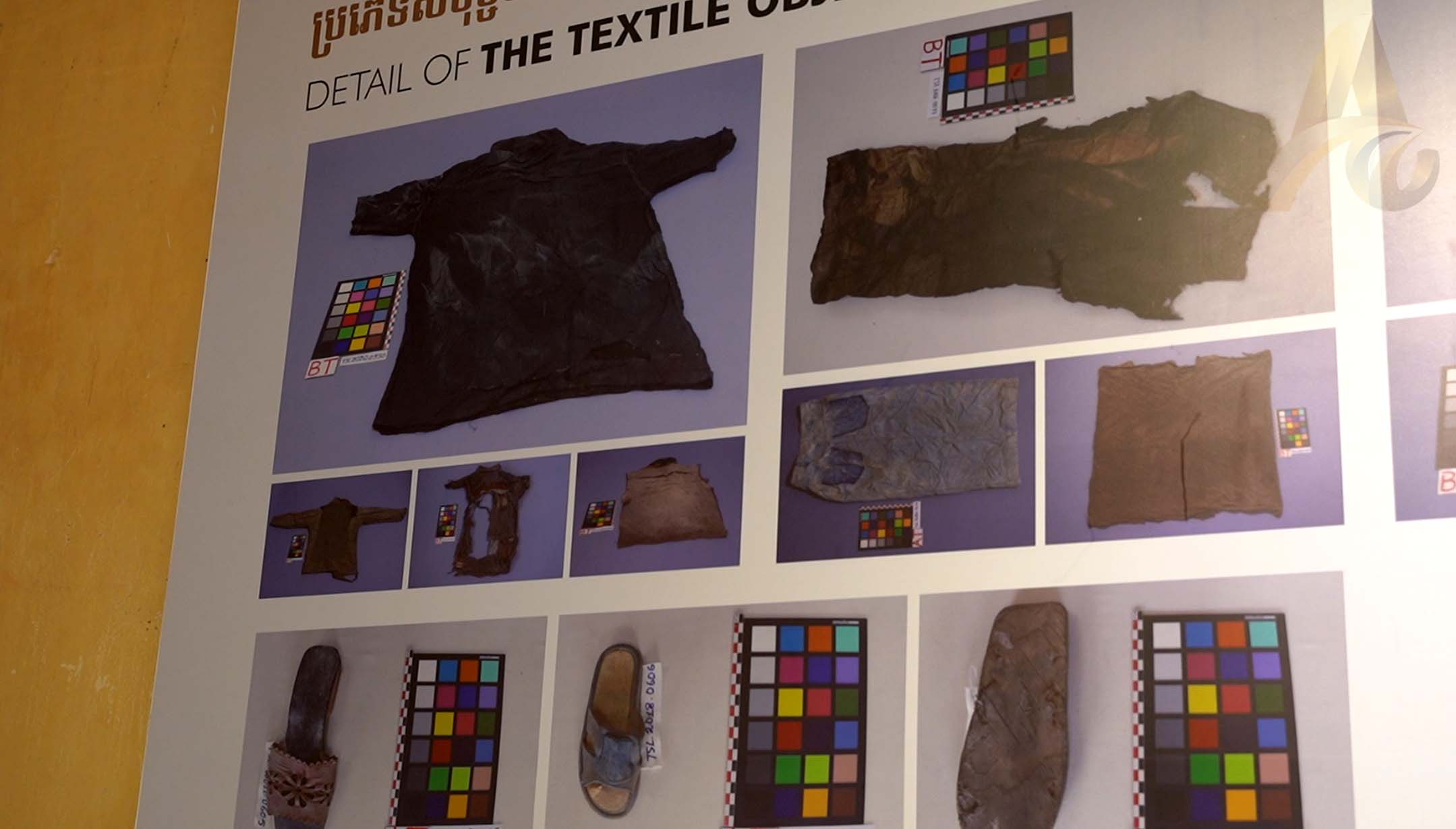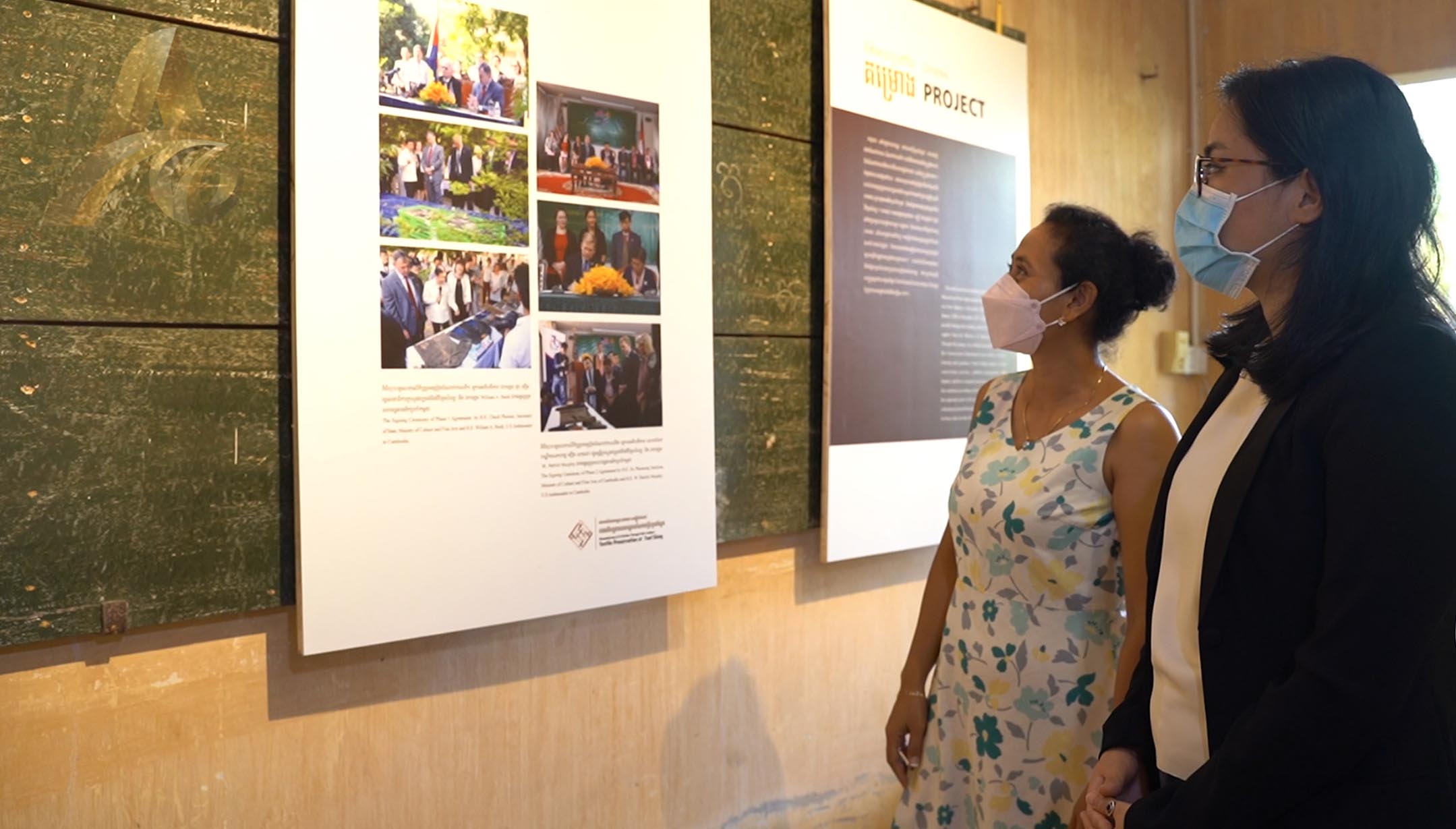PHNOM PENH: The Tuol Sleng Genocide Museum unveiled a new temporary exhibition on Monday, displaying the preserved clothes of S-21 victims. The exhibition aims to showcase the museum’s conservation and preservation efforts, and to act as a form of remembrance for the victims of the Khmer Rouge detention center.
The museum organized its first ever exhibition for local and international visitors in August of 1979, the same year the Khmer Rouge Regime was overthrown. The exhibition included photographs of prisoners at S-21, torture instruments and clothing. The museum states that the victims’ clothes were an important part that bore witness to the crimes committed during the regime. At the time, the clothes were displayed in a high pile inside a glass closet.
The conservation workshop at the museum was first established in 2014, by the Museum Director, Chhay Visoth, and was initially focused on stabilizing and maintaining over 2,600 metal objects in the museum, including shackles and torture equipment. The conservation team is responsible for managing and protecting the historic site, the collections and the storage.
The latest exhibition focused on the clothes of S-21 victims is the result of a textile conservation project implemented by the museum since 2018. Phase 1 of the project took place from January to December of 2018, and Phase 2 from January 2020 to December 2021. The project was made possible through funding from the US Embassy and the support of the Ministry of Culture and Fine Arts.
EAC News spoke with the Head of Conservation at the Conservation and Repair Workshop of Toul Sleng Genocide Museum, Kho Chenda, who told us more about the exhibition and the museum’s conservation efforts.
She said that textile preservation project focused on three main objectives: the conservation of historical evidence from the Khmer Rouge period, providing technical training for the museum’s officials and staff, and the standardization of techniques for documenting, organizing and storing the collections. Mainly, the exhibition is intended to show the results of the Conservation and Repair Workshop’s work related to preserving textiles.
She continued that this temporary exhibition will last for only a year, as it will not be possible to keep the clothes on display for too long since factors such as the temperature, humidity and light will affect the quality of the cloth. She said, “if we keep it out for too long, the cloth will change according to the temperature. If it is too hot, the cloth will become too dry. If it is raining a lot, the humidity in the air will make the cloth become rusty, moldy and crumbly, affecting the preserved items.”
On the subject of what the museum hoped visitors could learn from the exhibition of the preserved clothes, Chenda described that they wished to educate the new generation about the Khmer Rouge and let them know that it really happened. She said, “I have heard from some children coming to visit the museum that they have just heard about the Khmer Rouge from their parents, but they say that young kids killing elders during the war couldn’t have happened. And I want to confirm that all the clothes that we put on the exhibition belonged to the victims of the S-21 detention center.”
She emphasized the importance of the museum’s work in conservation and preservation. “We keep and preserve all these clothes in a technical standard way. If we don’t do it like this we have no evidence to show that the Khmer Rouge really happened,” she said.
Finally, on what message the museum hoped to send with this exhibition, Chenda said “This exhibition wants to send a message to the new generation and also to our general citizen about the dark time of the Khmer Rouge Regime, which we do not ever want to happen again. Nowadays, we are living in peaceful times, and we should keep living in peace like this forever.”
The Tuol Sleng Genocide Museum is the memorial site of the S-21 interrogation and detention center of the Khmer Rouge Regime. The new temporary exhibition preserving the clothes of S-21 victims is just one of the many efforts of the museum to highlight the importance of remembering this very dark and significant time in Cambodian history.

























